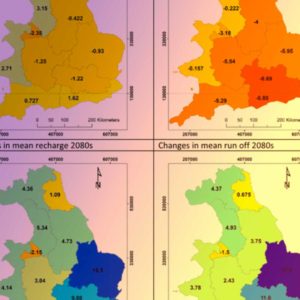Issue Date: June 2023

SoBRA held a one-day workshop in Birmingham in June 2022 entitled ‘The Climate Emergency: Practical Considerations in Brownfield Risk Assessment’. Risk assessment is a fundamentally important component of a multi-disciplinary approach to successful brownfield regeneration, and therefore, the adoption and integration of climate change considerations in brownfield risk assessment is critical.
The aim of the workshop was to discuss how we may need to adjust our approach to brownfield risk assessment to account for actual or anticipated climate change and its effects on contaminant sources, pathways and receptors. This report presents a written record of the discussions held during the Summer 2022 workshop.

